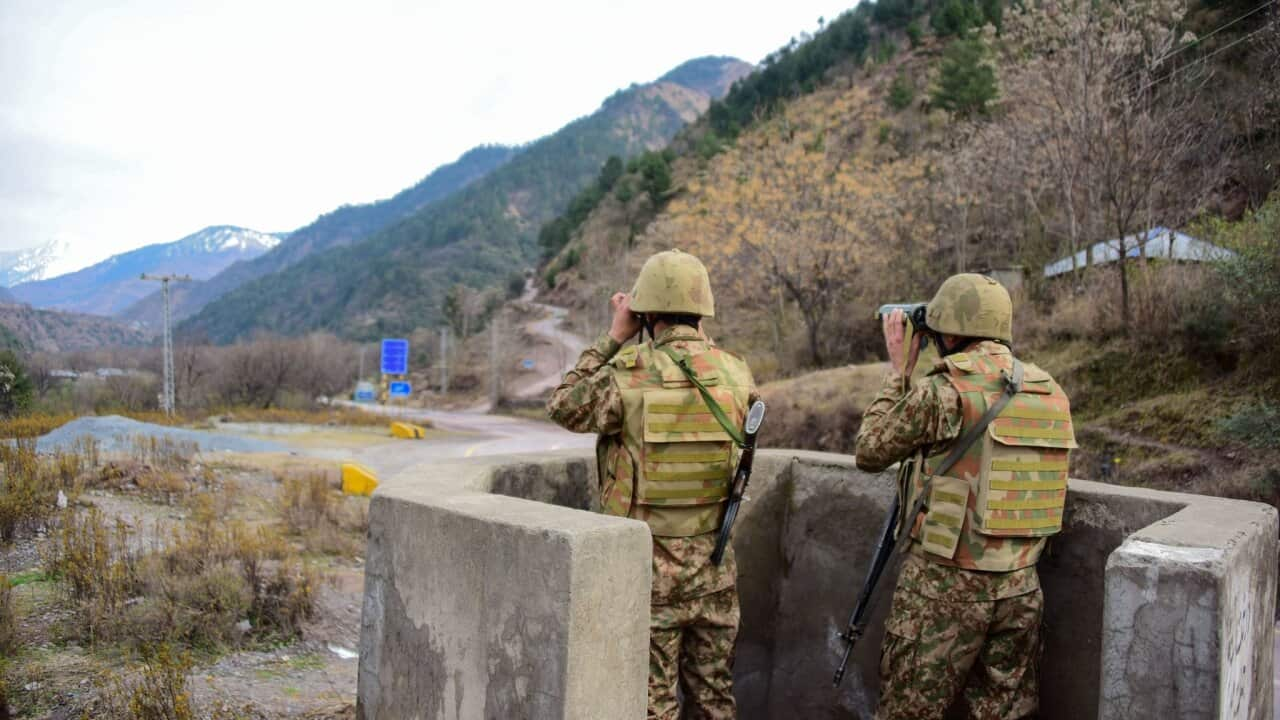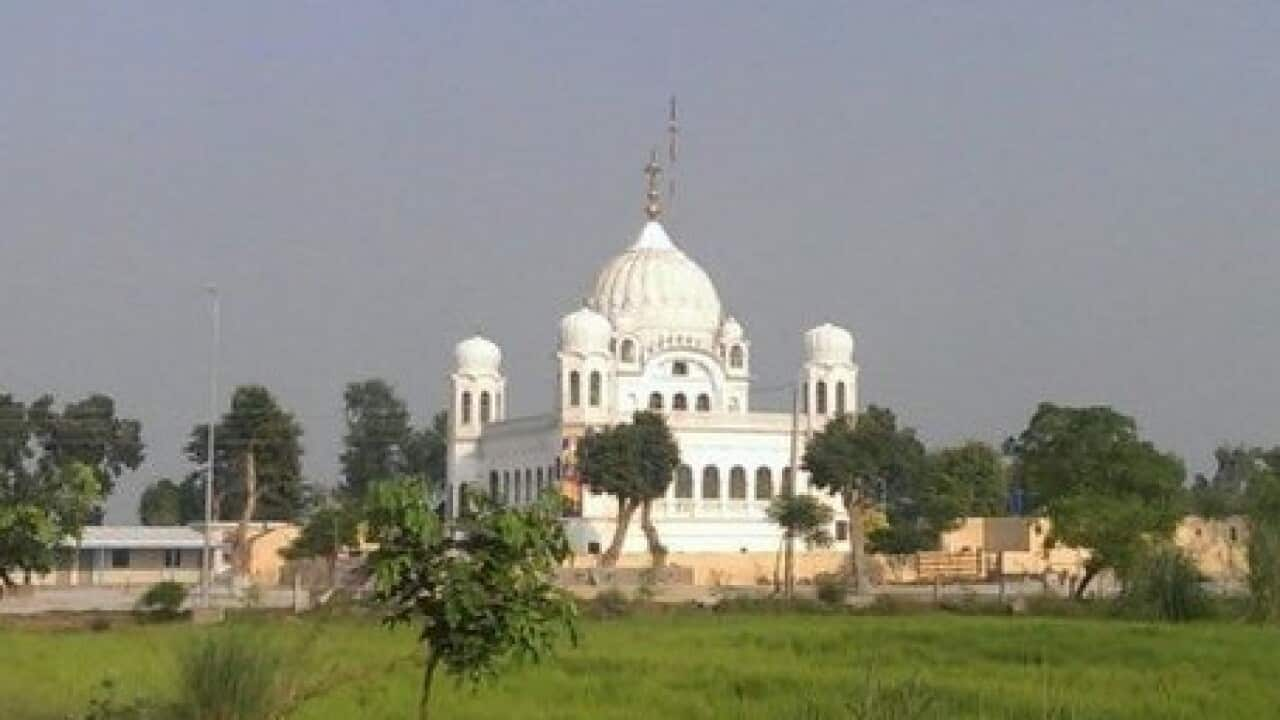SBS Urdu spoke to the High Commissioner about the allegations levelled by India over Pakistan's involvement in recent attacks including the suicide bombing in Palwama that killed over 40 Indian soldiers on February 14th this year.
Mr Amin denied them, calling it a "blame game perpetrated by India which has no substance to it.
"Pakistan has time and again, as a responsible member of the international community, reiterated its stance against terrorism," he said.
“Pakistan itself has been the biggest victim of terrorism. It has made tremendous efforts to uproot the menace of terrorism and has sacrificed around 70,000 people during the fight against terrorism.”
“Pakistan does not allow its soil to be used for carrying out terrorist attacks in other countries. This is a well stated and well-documented policy of Pakistan."
At the end of February India handed over a dossier detailing the results of its investigation and Pakistan-based group Jaish-e-Mohammed's complicity in the Pulwama attack. A foreign ministry spokesman that Pakistan should "take immediate, credible, irreversible and verifiable actions against terrorists and terror organisations operating from territories under its control."
The High Commissioner rejected India's claim that its neighbour does not take action against those involved.
“These knee-jerk and pre-conceived accusations were nevertheless consistent with previous Indian behaviour on similar incidents. The Prime minister of Pakistan has repeatedly offered help in the investigation to India.
“Jaish-e-Mohammad (JeM) has been proscribed by Pakistan since 2002, even before its proscription by the United Nations. As the organisation has been rendered toothless, it does have not the means to carry out such brazen attack in another country. Pakistan has also acted against other organizations under its National Action Plan (NPA).
“The government issued the United Nations Security Council (Freezing and Seizure) Order 2019, which is yet another step in strengthening the anti-terrorism regime in Pakistan.”

Pakistan High Commissioner in Australia Source: SBS
Pakistan desires better relations
Pakistan's High Commissioner told SBS Urdu that the country desires friendly relations with their neighbours.
"Pakistan and India can benefit immensely from excellent political and trade relations.
“Pakistan has always taken various steps towards normalisation of its relations with India. In a letter to Prime Minister Modi, Prime Minister Imran Khan expressed his intention of “taking two steps if India takes one” and had proposed that both Foreign Ministers to meet at the side-lines of the UNGA for drawing a comprehensive, tangible roadmap for normalisation of ties. India had cancelled the meeting on baseless pretexts."
“It has been Pakistan’s endeavour all along to develop good relations with India based on the principles of equality and mutual respect among sovereign States.”

Indian passengers prepare to board a train after resuming operations of Samjhota Express, the train service between Pakistan and India. EPA/RAHAT DAR Source: EPA

India Pakistan talks on the Kartarpur Corridor, 14 March 2019. EPA/PRESS INFORMATION BUREAU HANDOUT Source: PRESS INFORMATION BUREAU
"Jammu and Kashmir is a Muslim majority area and should have gone to Pakistan in 1947 as per wishes of the majority of the Kashmiris and in accordance with principles laid in the Independence and Partition of India Act 1947," he said.
India, however, this, stating that the accession of the state in 1947 was completely valid and that Jammu and Kashmir is an integral part of India.
“Ever since then the people of Kashmir have been fighting for their right to self-determination, which has been promised to them in many UN Security Council resolutions," Mr Amin said.
"Pakistan supports the Kashmiris morally and diplomatically to attain their right to self-determination and wants that the people of Kashmir be given a chance to decide their fate.
“The two states have gone to war numerous times over the Kashmir dispute. This is high time to resolve the Kashmir issue as per aspirations of the people of Kashmir and the UN resolutions on the subject.”

An Indian paramilitary soldier stands guard during a strike in protest against the ban on Jama'at-e-Islami, Srinagar, India, March 5 2019.(AP /Mukhtar Khan) Source: AP
The High-Commissioner also highlighted the "major role" of sports and culture that can help in "bringing people together" of the two nations.
"Sports and cultural exchanges play a major role in bringing people together. India had, however, cut off sporting and other cultural exchanges with Pakistan for many years now, which is quite unfortunate.
"India also doesn’t allow telecast of Pakistani television or screening of our movies as routine policy.
"I want to clarify that the ban on Indian movies in Pakistani cinemas has recently been placed in the backdrop of Indian aggression against the Pakistani territory. A similar ban was placed in Pakistan in 2016 but was later withdrawn after de-escalation.
"Pakistan, however, remains open and ready to play its role in fostering sporting and cultural relations between the two countries." Follow SBS Urdu on and .
Follow SBS Urdu on and .

India's Ambati Rayudu, left, plays a shot during the one day international cricket match of Asia Cup between India and Pakistan in Dubai. Source: AP


